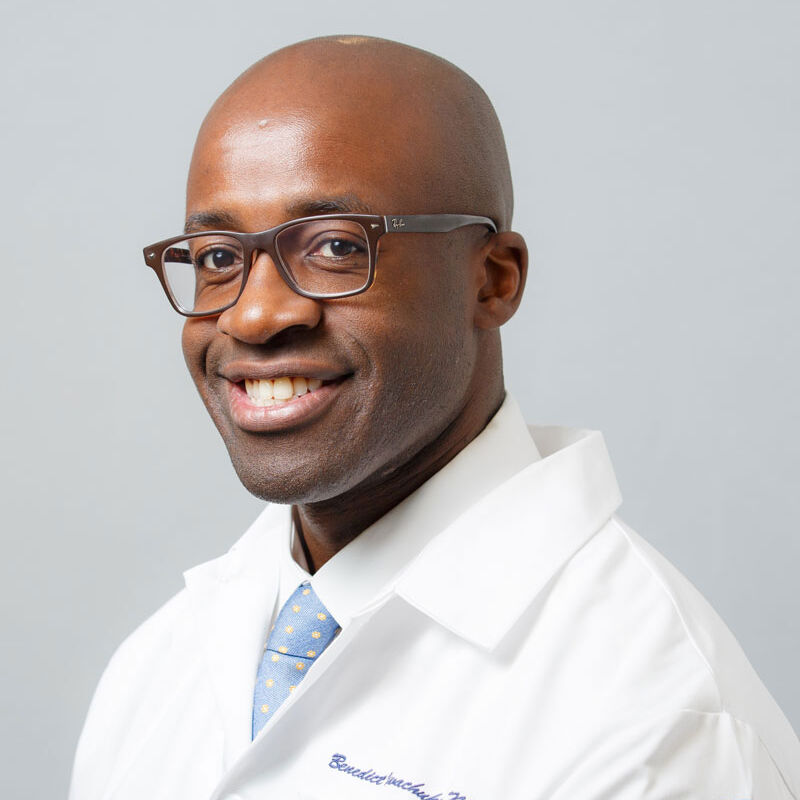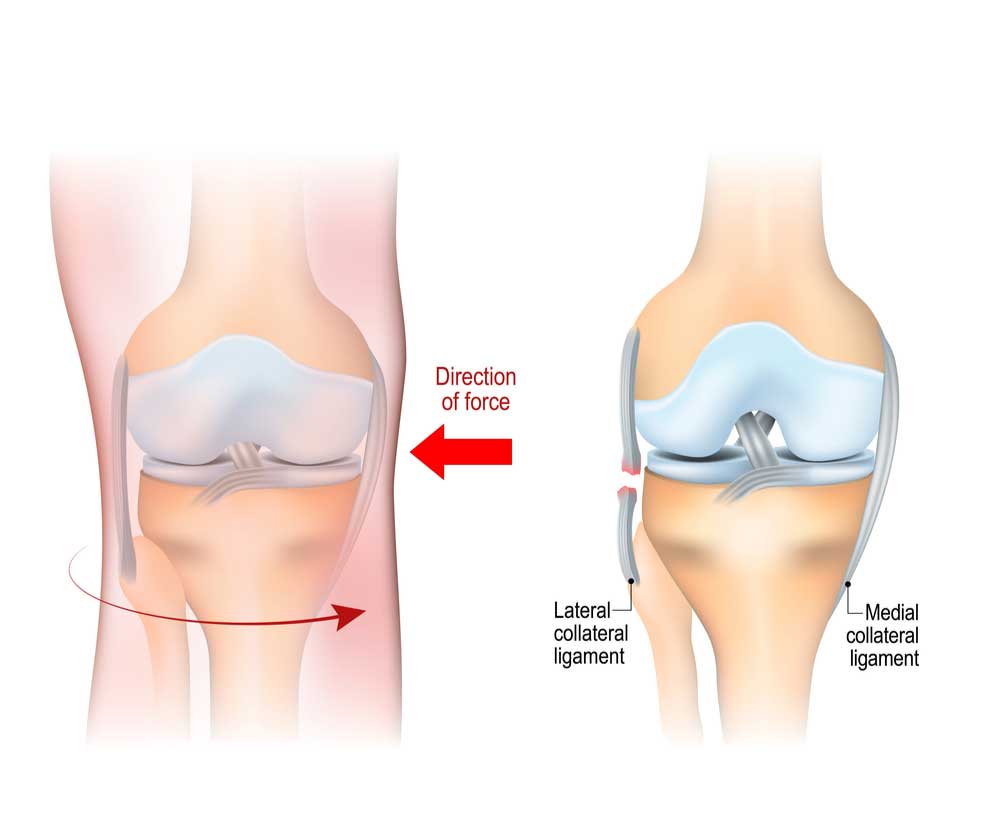LCL/FCL Injury Specialist

Tears to the lateral collateral ligament (LCL) most often occur when there is a direct hit or blow to the inside of the knee, forcing the knee to the outside. Common symptoms of an LCL or FCL injury are similar to other knee ligament injuries such as swelling, instability and stiffness. Lateral collateral ligament and fibular collateral ligament injury specialist, Doctor Benedict Nwachukwu provides diagnosis as well as surgical and nonsurgical treatment options for patients in Manhattan, New York City, NY who have sustained an LCL/FCL tear or injury. Contact Dr. Nwachukwu’s team today!
What is the LCL or FCL?
The LCL or lateral collateral ligament is also called the FCL or fibular collateral ligament. It is the main structure on the outside of the knee that provides stability during side-to-side motion and rotation. The LCL or FCL connects the femur (thighbone) to the fibula (small lower leg bone) and has flexibility to keep the knee stable throughout the range of motion, preventing injury to the knee joint. An injury to the LCL is usually caused by a great amount of force. Dr. Benedict Nwachukwu, orthopedic knee specialist, diagnoses and treats LCL or FCL injuries for patients in Manhattan, New York City and the surrounding New York boroughs.
What causes an LCL/FCL Injury?
Tears to the lateral collateral ligament (LCL) most often occur when there is a direct hit or blow to the inside of the knee, forcing the knee to the outside. This can stretch the ligaments on the lateral aspect of the knee and cause them to tear. An injury of this nature can occur in contact sports with violent collisions, such as football and hockey. Lateral sided knee injuries can also occur in fast-paced sports like soccer or basketball, in which players make sharp, sudden turns or stops. The LCL can also be injured by repeated stress that causes the knee to lose its normal elasticity.

What are symptoms of a torn lateral collateral ligament?
Common symptoms of an LCL or FCL injury are similar to other knee ligament injuries. It is important to seek medical attention when experiencing any of the following symptoms:
- Mild swelling and pain, especially on the outside of the knee
- Instability, feeling the knee is shifting or sliding
- Catching, popping or locking sensation during movement
- Stiffness and loss of range of motion
- Inability to stop, or cut to the side when running
- The foot feeling numb, cool or weak: This symptom needs immediate medical attention as it could indicate a neurovascular injury.
How is an LCL injury diagnosed?
An LCL/FCL injury is diagnosed by Dr. Nwachukwu through a physical examination and diagnostic tests. In many cases, athletes will complain of feeling side-to-side instability and may have varus gapping on the physical exam. This is when the knee opens up on the outside (lateral side) due to the lack of a lateral ligament constraint. Dr. Nwachukwu will test pain level, mobility and range of motion. X-rays will be performed to determine bone injury and an MRI scan may be used to determine the extent of damage to the LCL/FCL.
How is an FCL injury treated?
Non-Surgical Treatment:
For a lateral collateral ligament that is diagnosed as a strain, sprain or pull, surgery may not be needed. Rest, bracing, physical therapy and strengthening exercises may help the LCL injury heal. If there is pain, non-steroidal anti-inflammatory drugs (NSAIDs) may be used as directed.
Surgical Treatment:
If non-surgical measures do not alleviate pain and other symptoms of an LCL injury, or if there is a tear in the tendon, surgery may be recommended. The surgical procedure to repair the LCL/FCL injury will vary, depending on the amount of damage to the ligament. If the injury is severe, Dr. Nwachukwu will recommend a lateral collateral ligament reconstruction. This procedure removes the torn ligament and replaces it with a graft of similar size. The graft usually comes from a donor (allograft) and is attached to the native anatomic insertion sites of the lateral structures using surgical screws.
For more information on an LCL, FCL injury or on symptoms associated with a lateral collateral ligament injury, please contact the office of Benedict Nwachukwu, MD, orthopedic knee specialist serving Manhattan, New York City and the surrounding New York boroughs.